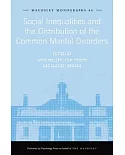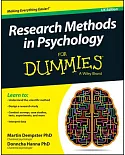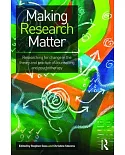"The chapters in this volume offer a broad-gauged, in-depth overview of diverse research methods for studying and improving people’s relationships with their everyday surroundings. This book
will be an invaluable resource for scholars and practitioners working in the interdisciplinary fields of environmental psychology, urban planning, and environmental design research."
Daniel Stokols, Ph.D., Chancellor’s Professor Emeritus, School of Social Ecology, University of California, Irvine, USA
"A highly accessible and long overdue book which sets the methods in context by starting with the problems environmental psychologists are trying to solve; it reflects what we tell our students
to do --- start with the problem and then explore the most appropriate methodology, not vice versa. An interesting choke of research methods have been selected that go beyond the normal
suspects."
David Uzzell, Professor of Environmental Psychology, University of Surrey, UK
"This is not only a volume on research methods, but an invaluable book showing the incredible richness and potential of the still-growing field of environmental psychology."
Mirilia Bonnes, Professor of Social and Environmental Psychology, Sapienza University of Rome, Italy
Research Methods for Environmental Psychology is the first new book covering research methods in environmental psychology in over 25 years, bringing the subject completely up to date with
coverage of the latest methodology. Environmental psychology is an applied field, whose practitioners are interested both in assessment and in application; these dual interests are covered
thoroughly in this timely book which comprehensively surveys the research and application methods for studying, changing, and improving human altitudes, behavior, and well-being in relation to
the physical environment.
Under the expert guidance of Robert Gifford, a range of leading contributors provide chapters on the full spectrum of methods in the field, from those for fundamental processes such as spatial
cognition and environmental perception la those for environmental psychological approaches to planning; designing and evaluating built environments; experimental design for environmental
psychology; qualitative methods for understanding perceptions of the environment; action research; simulations of buildings and resource management dilemmas; surveys and questionnaires for
environment and behavior, and intervention techniques and advanced statistical techniques.
Gathering together all the important approaches to investigating and improving the connection between people and their physical world, the text is an invaluable guide for those studying and
working in the field.





















